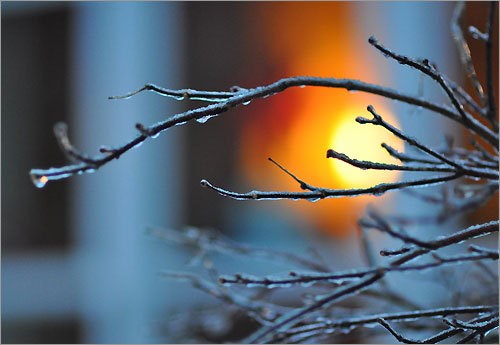At this time of hope and awe, it is good to recognize spirituality and its role in mental health – everybody’s mental health, not just those living with an illness.
I’ll leave it to the philosophers to debate the precise meaning of “spirituality,” but for our purposes I mean a set of beliefs that places individual hopes and dreams in the context of a greater purpose – one which is essentially unknowable but which, nonetheless, is the source of very real truths to which we may aspire.
It may be that the best thing we can do is to ask not what spirituality is but, rather, what it does.
A well-conceived spiritual self gives us a sense of our past and hope for a graceful future. In doing so, it makes today resonate with more than mere moments; our present, filled with happiness as well as pain, becomes a thread in a far greater weave. In short, our lives take place within higher meaning.
As such, acknowledgment of a higher plane of meaning gives our singular existence value beyond the temporal. It places our difficulties in a context that offers hope and significance – and the strength to endure the slings and arrows of our mortality.
Suffering often defies explanation. When we are visited by seemingly random misery, we naturally look for meaning. But our gaze is too often limited. We look for ways to blame ourselves, other people, or “bad luck” for misfortune.
This is doubly true when we are dealing with unaccountable sadness and emotional ache because, after all, these feelings come from the inside; it is hard to locate external causes for pain that is so profoundly deep and personal.
The loss of collective spirituality is a common lament in hard times. Cruelty and selfishness are on the ascendant, some will say, because belief in the eternal has been lost to the effortless gratifications of a technology-driven existence.
I don’t accept that proposition, though I do think that the eternal summer of convenience and anonymity causes us to be temporarily blind to higher meaning. Temporarily.
Winter is the time of want and deprivation. Yet, for thousands of years and across countless societies we have returned each dark season to our most profound mysteries and celebrated our connection to their grand purpose. As sure as the seasons pass, each year we become deeply connected, through the analogs of myth, ritual and story, to our deepest spiritual selves.
And this is the wondrous paradox that fuels my own belief that in every person there is a spiritual soul that is truly a part of a grand anima mundi.
How else to explain mass outbreaks of selflessness and goodwill that come with the snows? How else to explain why we celebrate with excesses of the most basic human behaviours – socializing, eating, and sharing?
Whether it is the Star of Bethlehem, the glimmer of the first crescent moon, or the shimmer of the Menorah, we all possess the profound need and ability to gaze into the eternal light.
When we do this we understand that all is not within our power. Not all is about speed, and convenience, and apps. We understand that our lives are interlaced with each other and that our mortal experience has meaning; we are happy.
And that is good.



